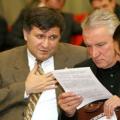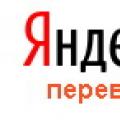RIO DE JANEIRO, August 17 - R-Sport, Oleg Bogatov. Three representatives of the Russian national team - Alexey Denisenko, Albert Gaun and Anastasia Baryshnikova - are entering the fight for medals at the taekwondo tournament in Rio de Janeiro.
More than a hundred 128 athletes (16 in each of eight weight categories) from 63 countries will compete in the competition, which will take place on August 17-20. The largest quota (five) was received by representatives of South Korea.
There are four participants each in the teams of France, Mexico, Great Britain, the USA, China, Azerbaijan, Brazil, Australia and Iran, three each in the teams of Russia, Egypt, Croatia, Germany, Spain, Morocco, Ivory Coast, Tunisia, the Dominican Republic, Taiwan, Uzbekistan, Kazakhstan, Thailand and Belgium.
Starting point - three awards
Over all the years of their participation in Olympic tournaments (the first of which took place in 2000), Russian athletes have stood on the podium three times. The first ever award for the national team was brought in 2000 by Natalya Ivanova, who became the silver medalist of the competition in the weight category over 67 kilograms. And in 2012, at the games in London, Alexey Denisenko (under 58) and Anastasia Baryshnikova (over 67) achieved bronze success.
Olympic winners won quotas
Denisenko and Baryshnikova again won the right to compete at the Olympic Games. They intend to add to the medal collection in 2016. But in the new cycle, the athlete moved to a heavier - up to 68 kg - weight category, in which he continues to perform successfully. Evidence of this is silver awards at the European Championships in 2014 in Baku and the 2015 World Championships in Chelyabinsk, as well as bronze at the 2015 European Games.
Baryshnikova will compete in the up to 67 kg category, and in the inter-Olympic cycle she won the European Championships in 2014 and the European Games in Baku.
The third member of the Russian squad - Albert Gaun (up to 80) - is the vice-champion of the European Games in this weight, the 2014 European champion, the silver medalist of the 2013 World Championship and the bronze winner of the 2015 World Championship in the category up to 74 kg.
The first rivals are from Venezuela, the USA and Germany
Based on the results of the qualifying selection, the Russians occupy high places in the Olympic ranking: Denisenko and Gaun are in fourth positions in the starting protocol, and Baryshnikova is in fifth.
The Russians' performances on Thursday will be opened by Denisenko - his opponent in the 1/16 finals will be Venezuelan Edgar Cantreras. On Friday, Baryshnikova will meet in a similar round with the bronze medalist of the 2013 World Championship and the 2014 European Championship (though in the up to 62 kg category), German Rabia Gülech.
Gaun’s most titled opponent at the first stage of the competition is the champion of the Olympic Games in Sydney and Athens, bronze medalist of the Beijing Games, world champion 1997, 2001, 2003, 2005, 2007 and 2009, American Steven Lopez. However, at the world championships in 2013 and 2015, the athlete finished the fight for awards in the quarterfinals.
With hopes for medals
On the eve of the tournament, President of the Russian Taekwondo Union Anatoly Terekhov told the R-Sport agency that one silver medal would be a success for the team following the results of the main competition of the four-year period. But both the head of the organization and the head coach of the Russian national team, Vadim Ivanov, are confident that Denisenko, Baryshnikova and Gaun set themselves only maximum goals and aim to pave the way to the top of the Olympic podium.
“In general, the results of the draw can be called successful for us. But this is not luck, this is a consequence of the good work of our athletes over the past three and a half years, which allowed them to take high places in the world rankings,” he noted in a conversation with a “R-” correspondent. Sports "Vadim Ivanov.
The 2016 Summer Olympics will take place from August 20 at the Arena Carioca 3 in the Olympic Park in Barra da Tijuca. 128 athletes will compete for eight sets of medals: 4 each for men and women.
Schedule
| date | August 17 | August 18 | August 19 | August 20 | ||||||||
|---|---|---|---|---|---|---|---|---|---|---|---|---|
| Category\Time | 09:00 - 13:00 | 15:00 - 18:00 | 20:00 - 23:05 | 09:00 - 13:00 | 15:00 - 18:00 | 20:00 - 23:05 | 09:00 - 13:00 | 15:00 - 18:00 | 20:00 - 23:05 | 09:00 - 13:00 | 15:00 - 18:00 | 20:00 - 23:05 |
| up to 58 kg | 01 ! | |||||||||||
| up to 68 kg | 01 ! | |||||||||||
| up to 80 kg | 01 ! | |||||||||||
| over 80 kg | 01 ! | |||||||||||
| date | August 17 | August 18 | August 19 | August 20 | ||||||||
|---|---|---|---|---|---|---|---|---|---|---|---|---|
| Category\Time | 09:00 - 13:00 | 15:00 - 18:00 | 20:00 - 23:05 | 09:00 - 13:00 | 15:00 - 18:00 | 20:00 - 23:05 | 09:00 - 13:00 | 15:00 - 18:00 | 20:00 - 23:05 | 09:00 - 13:00 | 15:00 - 18:00 | 20:00 - 23:05 |
| up to 49 kg | 01 ! | |||||||||||
| up to 57 kg | 01 ! | |||||||||||
| up to 67 kg | 01 ! | |||||||||||
| over 67 kg | 01 ! | |||||||||||
Medals
Overall standings
(Bold awarded the largest number of medals in its category; host country is also highlighted)
| Total number of medals | |||||
|---|---|---|---|---|---|
| Place | A country | Gold | Silver | Bronze | Total |
| 1 | 2 | 0 | 3 | 5 | |
| 2 | 2 | 0 | 0 | 2 | |
| 3 | 1 | 1 | 1 | 3 | |
| 4 | 1 | 0 | 2 | 3 | |
| 5 | 1 | 0 | 1 | 2 | |
| 6 | 1 | 0 | 0 | 3 | |
| 7 | 0 | 1 | 1 | 2 | |
| 0 | 1 | 1 | 2 | ||
| 9 | 0 | 1 | 0 | 1 | |
| 0 | 1 | 0 | 1 | ||
| 0 | 1 | 0 | 1 | ||
| 0 | 1 | 0 | 1 | ||
| 0 | 1 | 0 | 1 | ||
| 14 | 0 | 0 | 1 | 1 | |
| 0 | 0 | 1 | 1 | ||
| 0 | 0 | 1 | 1 | ||
| 0 | 0 | 1 | 1 | ||
| 0 | 0 | 1 | 1 | ||
| 0 | 0 | 1 | 1 | ||
| 0 | 0 | 1 | 1 | ||
| Total | 8 | 8 | 16 | 32 | |
Medalists
Men
| Discipline | Gold | Silver | Bronze |
| Up to 58 kg | |||
| Up to 68 kg | |||
| Up to 80 kg | |||
| Over 80 kg | |||
Women
| Discipline | Gold | Silver | Bronze |
| Up to 49 kg | |||
| Up to 57 kg | |||
| Up to 67 kg | |||
|
||||||||
An excerpt characterizing Taekwondo at the 2016 Summer Olympics
Everyone stood in dejected silence. The tall fellow moved his lips and staggered.“I should ask him!.. That’s what he is?.. Well, he asked!.. But then... He’ll point out...” was suddenly heard in the back rows of the crowd, and everyone’s attention turned to the droshky of the police chief, accompanied by two mounted dragoons.
The police chief, who had gone that morning by order of the count to burn the barges and, on the occasion of this order, had rescued a large sum of money that was in his pocket at that moment, seeing a crowd of people moving towards him, ordered the coachman to stop.
- What kind of people? - he shouted at the people, scattered and timidly approaching the droshky. - What kind of people? I'm asking you? - repeated the police chief, who did not receive an answer.
“They, your honor,” said the clerk in the frieze overcoat, “they, your highness, at the announcement of the most illustrious count, without sparing their lives, wanted to serve, and not like some kind of riot, as said from the most illustrious count...
“The Count has not left, he is here, and there will be orders about you,” said the police chief. - Let's go! - he said to the coachman. The crowd stopped, crowding around those who had heard what the authorities said, and looking at the droshky driving away.
At that time, the police chief looked around in fear and said something to the coachman, and his horses went faster.
- Cheating, guys! Lead to it yourself! - shouted the voice of a tall guy. - Don't let me go, guys! Let him submit the report! Hold it! - voices shouted, and people ran after the droshky.
The crowd behind the police chief, talking noisily, headed to the Lubyanka.
- Well, the gentlemen and the merchants have left, and that’s why we are lost? Well, we are dogs, or what! – was heard more often in the crowd.
On the evening of September 1, after his meeting with Kutuzov, Count Rastopchin, upset and offended by the fact that he was not invited to the military council, that Kutuzov did not pay any attention to his proposal to take part in the defense of the capital, and surprised by the new look that opened up to him in the camp , in which the question of the calm of the capital and its patriotic mood turned out to be not only secondary, but completely unnecessary and insignificant - upset, offended and surprised by all this, Count Rostopchin returned to Moscow. After dinner, the count, without undressing, lay down on the sofa and at one o'clock was awakened by a courier who brought him a letter from Kutuzov. The letter said that since the troops were retreating to the Ryazan road outside Moscow, would the count like to send police officials to lead the troops through the city. This news was not news to Rostopchin. Not only from yesterday’s meeting with Kutuzov on Poklonnaya Hill, but also from the very Battle of Borodino, when all the generals who came to Moscow unanimously said that it was impossible to give another battle, and when, with the count’s permission, government property was already being taken out every night and the residents were half gone, Count Rastopchin knew that Moscow would abandoned; but nevertheless, this news, communicated in the form of a simple note with an order from Kutuzov and received at night, during his first sleep, surprised and irritated the count.
Subsequently, explaining his activities during this time, Count Rastopchin wrote several times in his notes that he then had two important goals: De maintenir la tranquillite a Moscow et d "en faire partir les habitants. [Keep calm in Moscow and escort out her inhabitants.] If we assume this double goal, every action of Rostopchin turns out to be impeccable. Why were the Moscow shrine, weapons, cartridges, gunpowder, grain supplies not taken out, why were thousands of residents deceived by the fact that Moscow would not be surrendered, and ruined? - For this In order to maintain calm in the capital, Count Rastopchin’s explanation answers. Why were the bales exported? unnecessary papers from public places and Leppich's ball and other objects? – In order to leave the city empty, Count Rastopchin’s explanation answers. One has only to admit that something threatened the people's peace, and any action becomes justified.
All the horrors of terror were based only on concern for public peace.
What was Count Rastopchin’s fear of public peace in Moscow based on in 1812? What reason was there for supposing there was a tendency towards indignation in the city? Residents left, troops, retreating, filled Moscow. Why should the people rebel as a result of this?
Not only in Moscow, but throughout Russia, upon the entry of the enemy, nothing resembling indignation occurred. On September 1st and 2nd, more than ten thousand people remained in Moscow, and, apart from the crowd that had gathered in the courtyard of the commander-in-chief and attracted by him, there was nothing. Obviously, it was even less necessary to expect unrest among the people if after the Battle of Borodino, when the abandonment of Moscow became obvious, or, at least, probably, if then, instead of agitating the people with the distribution of weapons and posters, Rostopchin took measures to the removal of all sacred objects, gunpowder, charges and money, and would directly announce to the people that the city was being abandoned.
Rastopchin, an ardent, sanguine man who always moved in the highest circles of the administration, although with a patriotic feeling, did not have the slightest idea about the people he thought of governing. From the very beginning of the enemy’s entry into Smolensk, Rostopchin envisioned for himself the role of leader of the people’s feelings—the heart of Russia. It not only seemed to him (as it seems to every administrator) that he controlled the external actions of the inhabitants of Moscow, but it seemed to him that he controlled their mood through his proclamations and posters, written in that ironic language that the people in their midst despise and which they do not understands when he hears it from above. Rostopchin liked the beautiful role of the leader of popular feeling so much, he got used to it so much that the need to get out of this role, the need to leave Moscow without any heroic effect, took him by surprise, and he suddenly lost from under his feet the ground on which he stood, he absolutely did not know what should he do? Although he knew, he did not believe with all his soul until last minute to leave Moscow and did nothing for this purpose. Residents moved out against his wishes. If public places were removed, it was only at the request of officials, with whom the count reluctantly agreed. He himself was occupied only with the role that he made for himself. As often happens with people gifted with an ardent imagination, he knew for a long time that Moscow would be abandoned, but he knew only by reasoning, but with all his soul he did not believe in it, and was not transported by his imagination to this new situation.
All his activities, diligent and energetic (how useful it was and reflected on the people is another question), all his activities were aimed only at arousing in the residents the feeling that he himself experienced - patriotic hatred of the French and confidence in itself.
But when the event took on its real, historical dimensions, when it turned out to be insufficient to express one’s hatred of the French in words alone, when it was impossible even to express this hatred through battle, when self-confidence turned out to be useless in relation to one issue of Moscow, when the entire population, like one person, , abandoning their property, flowed out of Moscow, showing by this negative action all the strength of his national feeling - then the role chosen by Rostopchin suddenly turned out to be meaningless. He suddenly felt lonely, weak and ridiculous, without any ground under his feet.
Website: www.rio2016.com
VENUES: CARIOCA ARENA 3
Russia will be represented at the Olympic Games in Rio de Janeiro Alexey Denisenko(weight category up to 68 kg), Anastasia Baryshnikova(up to 67 kg) - bronze medalists of the 2012 Olympics in London and Albert Gaun(up to 80 kg) - will go to the Olympic Games for the first time.
“Based on the results of the draw, in the first fight Alexey Denisenko will meet with the athlete from Venezuela Edgar Cantreras,” according to Vadim Ivanov. “Albert Gaun will compete with the American Stephen Lopez, and Anastasia Baryshnikova will compete with her opponent from Germany Rabia Gülech. In general, the results of the draw can be called successful for us. But this is not luck, this is a consequence of the good work of our athletes over the past three and a half years, which allowed them to take high places in the world rankings.
The head coach of the Russian taekwondo team, Vadim Ivanov, also stated that the task of the Russian team at the 2016 Olympics is to win one silver and one bronze medal. Source: http://rsport.ru/
“I already know my two opponents at the 2016 Games - Alexey’s words. - The first is an athlete from Venezuela, he has no serious titles, but you can’t say “weak opponent”. There are no weak ones. The second is a taekwondo athlete from Turkey. He is strong and famous because his fights are very spectacular and beautiful. He is short, so he moves a lot - such spectacular turns.
My first opponent at the 2016 Games is an athlete from Germany. - Anastasia’s words. - I managed to defeat her at the Grand Prix stages, but the Olympics are unpredictable. I think she's preparing seriously.
At the 2016 Games, I will have an interesting opponent at the beginning - American Steven Lopez. - Albert's words. - This is his fifth Olympics, he is a star, but... he is four years younger than my mother (smiles). In general, Stephen is no longer the same. I'm sure I can beat him. In general, there are 16 people in my weight category, and all of them are serious competitors.”
The training camp of the Russian Olympic taekwondo team has ended at the Yug Sport athlete training center in Kislovodsk.
Taekwondo is a martial art that originated in Korea quite recently. The basic principles are based on karate, but unlike karate, taekwondo has many different kicks. The word itself translates as “the path of the fist and foot.” The discipline was added to the Summer Olympics in 2000.
Participants in taekwondo games
For summer Olympic Games 128 taekwondo wrestlers will come to Rio de Janeiro 2016. Of these, there will be 64 men and women, each group has 4 weight categories. A total of 8 sets of medals will be awarded.
One country can send no more than 8 athletes to the Summer Olympic Games: one in each weight category. To do this, selection must confirm their right to participate in competitions. The bulk of places in the competition go to the winners of several continental competitions, each of which is regarded by the Olympics as a qualifying tournament:
- World ranking;
- European competition qualification;
- African Qualification;
- Oceania Qualification;
- Pan American Qualifier;
- Asian qualification.
Additionally, athletes can take part in the Games based on ratings or by decision of a special commission.
Taekwondo competition calendar
Taekwondo competitions last 4 days, from August 17 to 20. On each day, the finals of the competition begin and end for one weight group for men and one for women. Competition schedule:
- August 17. Men: up to 58 kg. Women: up to 49 kg;
- August 18. Men: up to 68 kg. Women: up to 57 kg;
- August 19. Men: up to 80 kg. Women: up to 67 kg;
- August 20. Men: over 80 kg. Women: over 67 kg.
The martial art of Taekwondo originated in Korea. The main feature of this art is that most of the strikes are done with the feet. All kicks qualify higher than any other. When comparing a punch and a kick, the kick gives the advantage.
A jump shot is scored higher than a shot taken from the ground. If a fighter throws a series of punches, this is scored the same as a single kick. But in a series of kicks, each one is evaluated separately.
The competition takes place on a square tatami with a side of 12 m. It has an elastic coating.
One round lasts three minutes, so there are three rounds in a match. In men's competitions there is a one-minute pause between rounds, and in women's competitions there is a two-minute pause.
Taekwondo has a lot in common with karate. This system also has several belts different colors, which participants receive when they master wrestling techniques. Olympic taekwondo how sport different from the traditional one. The Taekwondo Federation has developed a special version of this wrestling for the Summer Olympics.
Read in the section Inadequate statements of Western politicians about Russia are probably caused by the incompetence of American intelligence companies





